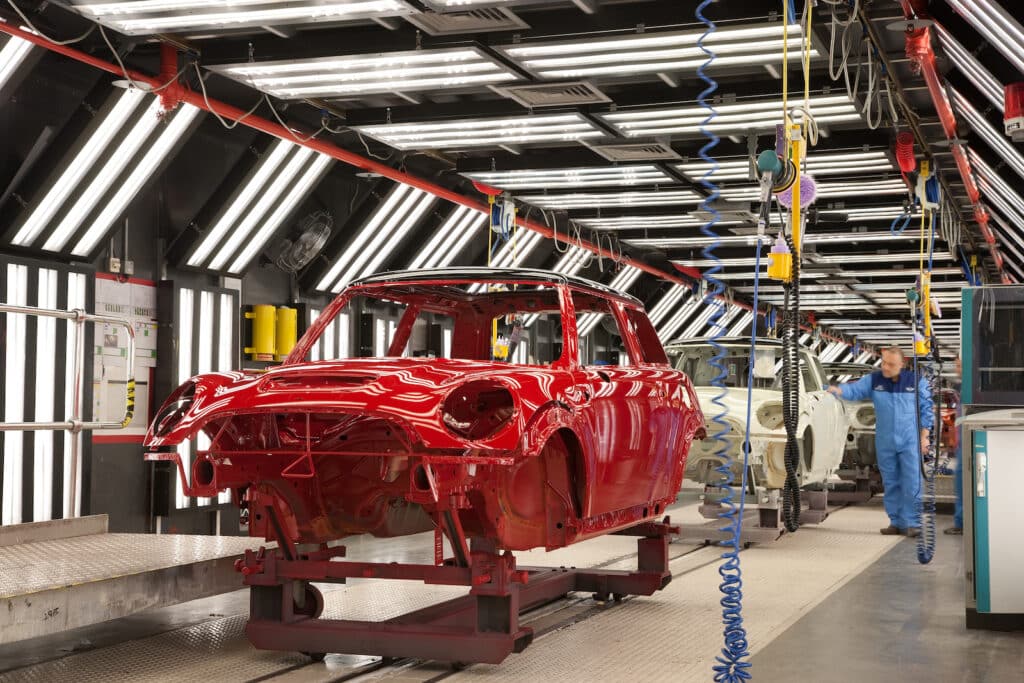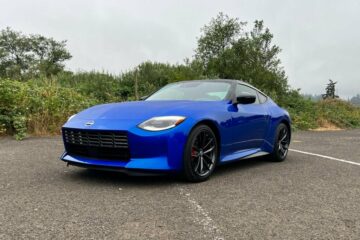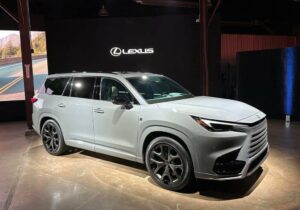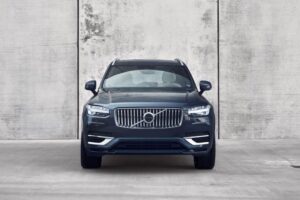
The BMW Group announced a fresh investment in the Oxford and Swindon Mini manufacturing facilities in the U.K. Monday at a cost of more than £600 million, or $750 million.
The Mini Cooper three-door and the small crossover Mini Aceman will be produced at the Oxford factory starting in 2026. By 2030, the BMW Group will have invested more than $3.7 billion, or £3 billion, in its Swindon, Hams Hall, and Oxford plants to convert to solely electric vehicle production.
“With this new investment we will develop the Oxford plant for production of the new generation of electric Minis and set the path for purely electric car manufacturing in the future,” said Milan Nedeljković, member of the Board of Management of BMW AG responsible for production.
Naturally, the investment is supported by the U.K. Government.
“This decision is a big vote of confidence in the U.K. economy and the work of this Government to ensure the continued strength of our world-leading automotive sector. We are proud to be able to support BMW Group’s investment,” said Business and Trade Secretary Kemi Badenoch.
Government help and headaches

The move clarifies an announcement made last week when the company unveiled the Mini Cooper and Mini Countryman at the IAA Mobility Show in Munich, then noted they would be manufactured in China, without commenting on any production in Mini’s Oxford home. But it’s been reported in British media that BMW receive government subsidies to keep production going in Oxford to the tune of $93.8 million.
But all might be in peril if the post-Brexit “rules of origin” are put into effect, which mandate that starting in 2024, 45% of the value of an EV sold in the EU must originate in Britain or the EU in order to avoid a 10% tariff.
Automakers are asking for a delay in the agreement, with Germany favoring postponing levies on sales of electric vehicles for three years between the U.K. and the EU, a move also supported by the European Commission. European automakers feel that the tariffs will harm local automakers while helping Chinese manufacturers, who are increasingly targeting Europe with its excess capacity.
History remains strong
Mini’s Oxford plant currently produces the Mini, one of the many vehicles it’s built in its 110-year history. That would include the Mini, which was built there for its first 10 years of production, starting in 1959, before production was moved to the Longbridge, Birmingham facility, where it was built through 2000.

The facility opened in March 1913 with a Morris Oxford being the first vehicle to roll off its line. Since then, it’s not only played host to Morris and Mini models but also those from MG, Wolseley, Riley, Austin, Austin Healey, Mini, Vanden Plas, Princess, Triumph, Rover, Sterling and Honda.
The plant was owned by Morris Motors through 1952, when Morris merged with Austin to form British Motor Corp. In 1967, BMC merged with Jaguar, becoming British Motor Holdings. The following year, BMC merged with Leyland truck company, which owned Triumph and Rover, to form the British Leyland Motor Corp. After being nationalized in 1974, its name continued to change, ultimately becoming the Rover Group in 1986. IT was privatized two years later with its sale to British Aerospace, which sold Rover Group to BMW in 1994.
BMW would invest in Rover, but would ultimately sell all of it, retaining the Mini brand, Plant Oxford, the Swindon pressings factory and the new Hams Hall engine plant.
Oxford’s recent history

Since the new Mini entered production in 2001, the Oxford plant has produced more than 1.7 million units for export, the company says.
Oxford currently produces the Mini 3-door, the Mini 5-door as well as the Mini Clubman and the Mini Electric. From 2024 the plant will start producing the next generation Mini three-door and Mini five-door with combustion engines, as well as the new Mini Convertible.
They will be joined by the new all-electric vehicles in 2026 — the Mini Cooper 3-door and the Mini Aceman — with production reaching 200,000 cars annually. It will join production of the new all-electric Mini Cooper 3-door and Aceman produced in Zhangjiagang, Jiangsu Province, a joint venture with China’s Great Wall Motor. Exports will begin in early 2024.
Which ones will be sold stateside remains to be seen.
- SEO Powered Content & PR Distribution. Get Amplified Today.
- PlatoData.Network Vertical Generative Ai. Empower Yourself. Access Here.
- PlatoAiStream. Web3 Intelligence. Knowledge Amplified. Access Here.
- PlatoESG. Automotive / EVs, Carbon, CleanTech, Energy, Environment, Solar, Waste Management. Access Here.
- PlatoHealth. Biotech and Clinical Trials Intelligence. Access Here.
- ChartPrime. Elevate your Trading Game with ChartPrime. Access Here.
- BlockOffsets. Modernizing Environmental Offset Ownership. Access Here.
- Source: https://www.thedetroitbureau.com/2023/09/bmw-investing-750m-for-mini-ev-production-in-u-k/
- :has
- :is
- :not
- :where
- $3
- 000
- 1
- 10
- 1994
- 200
- 2000
- 2001
- 2024
- 2025
- 2026
- 2030
- 7
- 8
- a
- Able
- Aerospace
- After
- AG
- Agreement
- All
- all-electric
- all-electric vehicles
- also
- an
- and
- announced
- Announcement
- Annually
- any
- ARE
- AS
- asking
- At
- austin
- automakers
- automotive
- avoid
- BE
- becoming
- been
- before
- begin
- being
- between
- Big
- Billion
- Birmingham
- BMC
- BMW
- board
- brand
- britain
- British
- built
- Bureau
- business
- but
- by
- Capacity
- car
- cars
- change
- China
- Chinas
- chinese
- Commenting
- commission
- company
- confidence
- continued
- convert
- cooper
- Corp
- Cost
- Currently
- decision
- delay
- develop
- Early
- economy
- effect
- Electric
- electric car
- electric vehicle
- electric vehicles
- Engine
- Engines
- ensure
- entered
- EU
- Europe
- European
- european commission
- EV
- excess
- export
- exports
- facilities
- Facility
- factory
- feel
- First
- following
- For
- form
- fresh
- from
- future
- generation
- Germany
- going
- Government
- great
- Group
- Group’s
- Hall
- harm
- Have
- help
- helping
- history
- Holdings
- Home
- host
- HTTPS
- if
- in
- include
- increasingly
- into
- Invest
- invested
- investing
- investment
- IT
- ITS
- jaguar
- join
- joined
- joint
- joint venture
- jpg
- Keep
- Last
- later
- Line
- local
- made
- management
- mandate
- manufactured
- Manufacturers
- manufacturing
- many
- March
- max-width
- Media
- member
- might
- MILAN
- million
- mobility
- models
- Monday
- more
- Motor
- Motors
- move
- moved
- Munich
- must
- name
- New
- new investment
- next
- noted
- now
- of
- off
- on
- ONE
- ones
- only
- opened
- or
- order
- our
- owned
- Oxford
- paint
- path
- plants
- plato
- Plato Data Intelligence
- PlatoData
- played
- Produced
- produces
- producing
- Production
- proud
- purely
- put
- reaching
- receive
- recent
- remains
- Reported
- responsible
- retaining
- Roll
- rover
- Said
- sale
- sales
- says
- secretary
- sector
- seen
- sell
- set
- show
- since
- small
- sold
- solely
- start
- Starting
- sterling
- strength
- support
- Supported
- targeting
- tariffs
- than
- that
- The
- The Future
- then
- There.
- they
- this
- those
- three
- Through
- to
- trade
- triumph
- truck
- two
- U.K.
- U.K. government
- Ultimately
- units
- unveiled
- value
- vehicle
- Vehicles
- venture
- Vote
- Vote of confidence
- Wall
- was
- we
- week
- WELL
- when
- which
- while
- WHO
- will
- with
- without
- Work
- would
- year
- years
- zephyrnet













